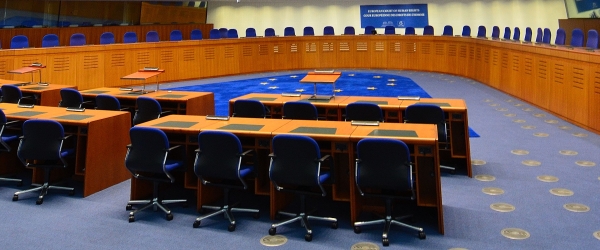
In its ruling of 27 November 2014 (case number: V CSK 487/13), the Supreme Court (Civil Chamber) asked a preliminary question to the CJEU. This is worth mentioning, as the decision in question is not only the first case of the Supreme Court revoking the preliminary procedure in civil matters, but also the first one in its jurisprudence at all. The question concerns two issues of the European civil procedure regulation.
THE MERITS OF THE INQUIRY
First of all, the Supreme Court inquired about Article 34 (2) of the Council Regulation (EC) 44/2001 of 22 December 2000 on jurisdiction, recognition and enforcement of judgments in civil and commercial matters (Brussels I) – presenting two alternative ways of understanding this provision in the context of the expiry of a term in which to file a remedy against the judgment set out therein. The questions asks whether the possibility of applying for a review of a judgment pertains exclusively to the case in which the remedy in question can be lodged in the term specified in the national law, or whether it also covers the situation in which the term has expired, but where it is still possible to apply for relieving the consequences of its expiry.
Secondly, the Court also queried the interpretation of Article 19 (4) of the Regulation (EC) 1393/2007 of the European Parliament and of the Council of 13 November 2007 on the service in the Member States of judicial and extrajudicial documents in civil or commercial matters (service of documents), and repealing Council Regulation (EC) No. 1348/2000. The question asks whether this provision excludes national rules on relieving the effects of the expiry of a term for lodging a remedy against a judgment, or whether it allows a defendant to choose between the application specified in this provision and the proper instrument provided by the national law.
BACKGROUND DETAILS
The questions raised in the proceedings concerning the declaration of enforceability of a French judgment issued against a defendant permanently residing in Poland. The entire correspondence in the proceedings before the French court was served upon the defendant at his address in Paris, but he was unaware of this, and therefore was excluded from the possibility of lodging an appeal against the judgment within the statutory term. For this reason, as the defendant pointed out, in the case there was an obstacle for declaring the judgment enforceable, upon Article 34 (2) of the 44/2001 (Brussels I) Regulation. The Court of the first instance approved the claimant’s claim, declaring the judgment enforceable. In the second instance, however, the demand was finally dismissed – and it was pointed out that the possibility to restore the period for appeal (feasible for the defendant after learning about the judgment) did not constitute the possibility of challenging a judgment in the meaning of the final part of Article 34 (2) of 44/2001 Regulation. The latter judgment became the subject of review by the Supreme Court (Civil Chamber) under a cassation claim by the claimant.
STANDPOINT OF THE SUPREME COURT
While providing a preliminary inquiry, the Supreme Court also expressed its own view upon the issues in question. First of all, commencing from an obligation to interpret the requirement of the “possibility to challenge” in an autonomous manner, the Court opted for a wide, functional understanding – coming to the conclusion that it also covers the admissibility of restoring a term (which therefore opens the way to declare a judgment enforceable). Secondly, it also concluded that Regulation 1393/2007 does not exclude domestic provisions on the restoration of a term – providing only a minimal standard of protection. Moreover, it does not address situations in which – as in the case decided – the judgment was served after the term, determined under France under Article 23 (1), would be calculated from the date of issuing this decision.
NOTE: THE DATABASE
The full list of previous preliminary questions referred to the ECJ and CJEU by the Polish ordinary courts (namely, excluding administrative jurisdiction) is available along with the relevant documents on the website of the Institute of Justice: http://www.iws.org.pl/badania/pytania-prejudycjalne-1).




